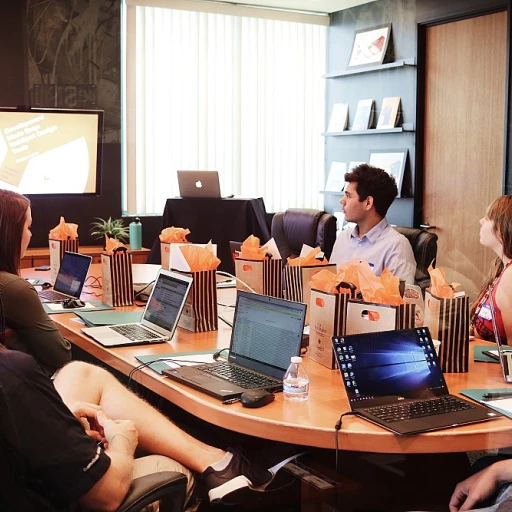Understanding the Intersection of Faith and Learning
Exploring the Confluence of Spiritual Commitment and Educational Pursuits
Understanding the intricate relationship between faith and learning opens a myriad of pathways for students who are committed to lifelong education. For students of faith, learning is more than the accumulation of knowledge; it's a calling to deepen their understanding of God and His creation. Faith students often seek to integrate their spiritual beliefs into their educational experiences, transforming both their academic and spiritual lives. The church often plays an integral role in shaping the educational journeys of young people, especially for those attending high school, middle school, or college. The local church not only provides a foundational community but also supports students by reinforcing the importance of continuous education through the teachings of Jesus Christ and the Word of God. Many faith-based educational institutions understand the heart of ministry and encourage students to explore how faith intersects with various aspects of learning. They emphasize the importance of a college student growing in faith while pursuing academic goals, whether at a faith church, within a youth ministry, or through involvement in local churches. Faith-based frameworks can help college students feel more connected with their peers and leaders who share similar values and goals. These platforms offer an environment where the teachings of Christ align with educational pursuits, advocating for continuous spiritual growth alongside academic achievements. Incorporating faith into their educational experiences helps students live their faith. Through this integration, they embrace a journey that not only enhances their intellectual capabilities but also uplifts their spirits. This harmonious blend of faith and learning encourages a life-long commitment to both spiritual enrichment and academic excellence. To further explore how these elements come together in practice, consider exploring how online courses can serve as a valuable resource, offering flexibility and access to knowledge while reinforcing spiritual and scholarly pursuits. Check out this relevant article on unlocking the potential of online courses for lifelong learning to better understand this connection.Challenges Faced by Students of Faith in Lifelong Learning
Overcoming Obstacles in the Journey of Faith and Learning
Lifelong learning as a student of faith presents unique challenges that can arise at different stages—whether it be during high school, college, or even during the engaging years in a ministry. The way people tackle these challenges will significantly impact their spiritual growth and the depth of their faith. For many students, balancing the demands of school and faith can feel like a daunting endeavor. The busy schedules of college students, combined with the pressures of academic performance, may leave little room for attending church services or participating in youth ministry activities. This could create a struggle between secular educational pursuits and maintaining a connection with god. Moreover, students at different life stages, from middle school through college, may find it challenging to consistently integrate faith practices into their daily routine. A key difficulty is often finding the right words to talk about Jesus Christ in diverse environments, which might not always be open to discussions about the word of god. Local church communities can sometimes become a haven for these faith students. However, the high expectations set by the student faith leaders or the youth ministry may create additional pressure. Young people might feel torn between following their spiritual aspirations and fitting into the academic or social environments they inhabit. To help navigate these hurdles, it is essential for students of faith to develop a meal plan that includes both academic assignments and dedicated time for spiritual activities, such as prayer and reading religious texts. Schools and colleges can offer support, too, by providing faith-based clubs or support groups that meet the specific needs of faith church students, allowing young individuals to foster a supportive faith-based community. Through these initiatives and the embracement of lifelong learning as a key to advance their spiritual and academic life, faith students are more likely to succeed. Looking for further inspiration? Embrace lifelong learning for professional advancement, where learning and faith go hand in hand.Strategies for Integrating Faith into Continuous Learning
Integrating Faith in Continuous Learning: Strategies for Growth
For students of faith, intertwining both educational pursuits and spiritual development is essential. The process of integrating faith into continuous learning involves understanding how faith and academic growth can synergize to foster a more holistic development. Here are some effective strategies to achieve this growth:
- Grounding Learning in Spiritual Principles: By aligning educational goals with spiritual values, college students and high school students can find deeper meaning and motivation in their studies. Referencing the lessons from jesus and the word of god, students can draw inspiration from biblical teachings to enhance their learning experiences.
- Participating in Faith-Based Study Groups: Collaborating with peers through faith-based study groups or bible study sessions within the local church can help students stay committed to both their spiritual and academic goals. These environments encourage discussions that enrich both their faith and their understanding of challenging academic concepts.
- Balancing Academic and Spiritual Responsibilities: With the demands of middle school, college, or youth ministry activities, students faith may find it challenging to allocate time effectively. However, integrating faith into an everyday meal plan or daily schedule is possible, ensuring that students grow in christ while achieving academic success.
- Incorporating Faith into Curriculum: Educators and faith leaders can collaborate to incorporate faith-based perspectives into school and college curricula, allowing students to explore the intersection of science, history, and spirituality. This integration can help bridge the gap between living one's faith and academic inquiry.
These strategies help in fostering spiritual growth alongside academic achievement. For more insights on optimizing skills for future learning needs, explore our detailed guide on building skills for tomorrow's workforce.
The Role of Community in Supporting Lifelong Learners
Community Spirit in Lifelong Faith Learning
For students of faith, engaging with the community can be a cornerstone of lifelong learning. A community offers a nurturing environment where faith and knowledge grow hand in hand. Local churches, youth ministries, and faith-based organizations play a pivotal role in supporting students as they navigate the complexities of integrating their beliefs with ongoing education. A church community acts as a platform where students and college students can connect with mentors who share a passion for learning and spiritual growth. These high school and college student interactions foster a culture of encouragement, where young people feel inspired to pursue their educational goals while nurturing their faith. Moreover, these communities often facilitate various programs and initiatives designed to help members of their faith community develop academically, spiritually, and personally. For instance, local churches might organize study groups, workshops, or life coaching sessions that equip faith students with vital skills and knowledge for their journeys. Such initiatives aim to build a strong foundation rooted in both intellectual and spiritual understanding. Leaders within these communities also play a critical role in shaping the learning environment. They provide guidance, encouragement, and insights based on their years of experience and deep understanding of scripture, making them invaluable resources for growing faith through continuous learning. These leaders help bridge the gap between religious instruction and real-world application, fostering an environment that encourages students to live faith in everyday situations. Ultimately, embracing the support of a welcoming community not only enhances a student's educational journey but also nurtures their spiritual growth, ensuring they are well-equipped to navigate life’s challenges with confidence and resilience in their pursuit of knowledge.Leveraging Technology for Faith-Based Learning
Navigating the Digital Landscape for Faith-Based Education
In today's tech-driven world, the intersection of technology and faith offers a plethora of opportunities for christian college students and youth ministry leaders aiming to grow their faith. Technology isn't just a tool for collaboration; it's a gateway to access teachings, sermons, and resources from faith churches around the world. The use of online platforms can help students of faith dive deeper into the word of god. For instance, digital libraries filled with scriptures or audio services from local churches allow students to access God's word at any time, enhancing their educational journey. Leveraging technology can also facilitate online communities where college and middle school students come together to discuss their spiritual growth and share insights. Moreover, apps designed for spiritual learning provide structured programs that fit into a student's life, whether they're in high school, college, or transitioning between stages. These tools often offer daily devotions, reminders, and reading plans that support integrating faith into busy schedules of a college student. Many leaders in faith-based educational circles recognize the potential of using technology to encourage lifelong learning. By creating digital mentorship programs or virtual study groups, they offer platforms where students can live their faith practically and connect with mentors in ministry. While technology offers vast benefits, it's crucial for students and leaders alike to approach these resources with discernment, ensuring they align with the teachings of jesus christ and support genuine faith-building efforts. With the right guidance and the embrace of technological advancements, young people can fully harness these digital tools for a comprehensive and holistic journey in faith and academics.Success Stories: Inspiring Journeys of Faith and Learning
Inspiring Journeys of Faith and Learning
The intersection of faith and lifelong learning provides many uplifting stories, spotlighting individuals who brilliantly balance their spiritual devotion with a commitment to education. These success stories often highlight how embracing learning can propel personal growth and community engagement among young people and students of faith.
For instance, college students who actively involve themselves in student faith groups often find strength and motivation from those around them. These groups, often organized by a local church or a faith-based organization, offer mutual support, creating an environment where academic and spiritual journeys go hand in hand. It becomes evident that faith and learning can harmoniously co-exist, fostering both spiritual growth and intellectual enrichment.
Another remarkable story can be seen in the work of the youth ministry within the church setting. Many ministers recognize the power of education in shaping the future choices of high school and middle school students. By integrating educational programs with the teachings of Jesus Christ, these leaders are helping the younger generation to align their life goals with their christian faith.
The journey of faith and learning is also evident in the lives of individuals who return to school after years in ministry. These inspiring figures illustrate how the pursuit of knowledge serves as a tool to enhance their ability to reach communities and visualize more impactful youth programs. Their stories underscore the belief that with invested time in learning, tools for ministry become more effective.
Furthermore, high leaders in the religious community reveal how maintaining their love for learning informs their teachings about Jesus and God's word. By staying educated, they help their congregation to navigate the complexities of modern life with a faith-based perspective. They become beacons of wisdom and knowledge, truly living their faith while encouraging others to do the same.
These stories remind us that learning is not merely acquiring knowledge—it is about inspiring others, growing in faith, and impacting the world positively. As each christian intertwines their educational pursuits with their spirituality, they become living testimonies of how faith and learning can beautifully coexist and enrich a life.








